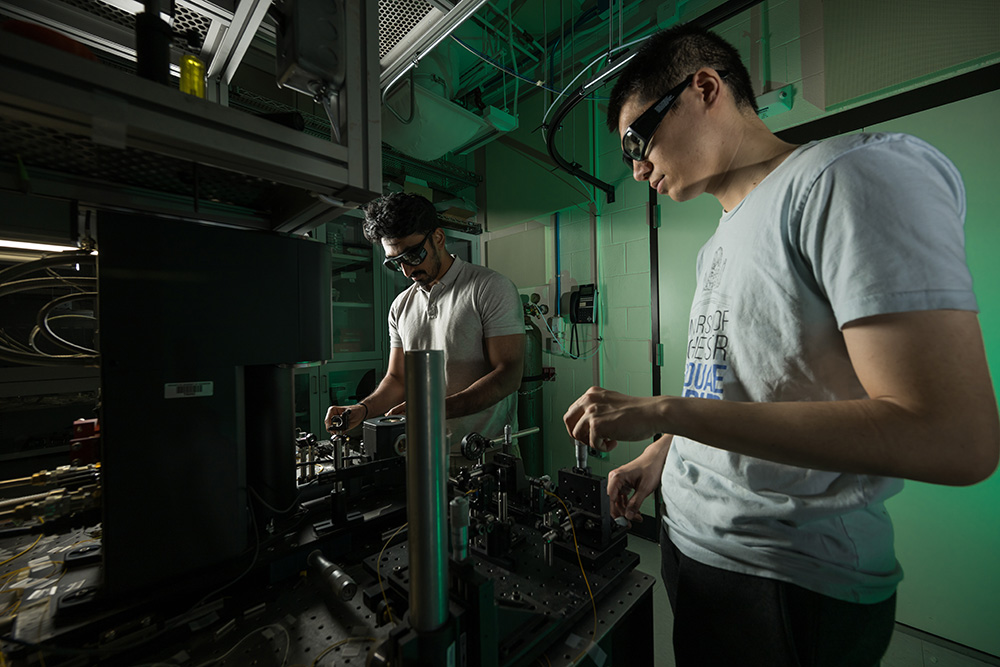Master's Program
The MS program in optics is designed to provide students with the knowledge and skills to contribute to state-of-the-art optics research and development. Students with backgrounds in optical engineering, physics, electrical engineering, and other engineering fields are well-suited to the MS program in optics.
Customize Your MS Program
A number of options are available within the general degree requirements to satisfy the needs of a variety of students:
- Coursework MS
- Standard option (two semesters)
- With summer residency (three semesters)
- Specialty
- Various options, including business administration
- Hybrid Optics Master’s Education (online MS with in-person laboratory training)
- MS Co-Op Program (four semesters)
- Thesis MS (three to four Semesters)
- Part-Time
For more information about financing and application requirements, visit the applying page.

